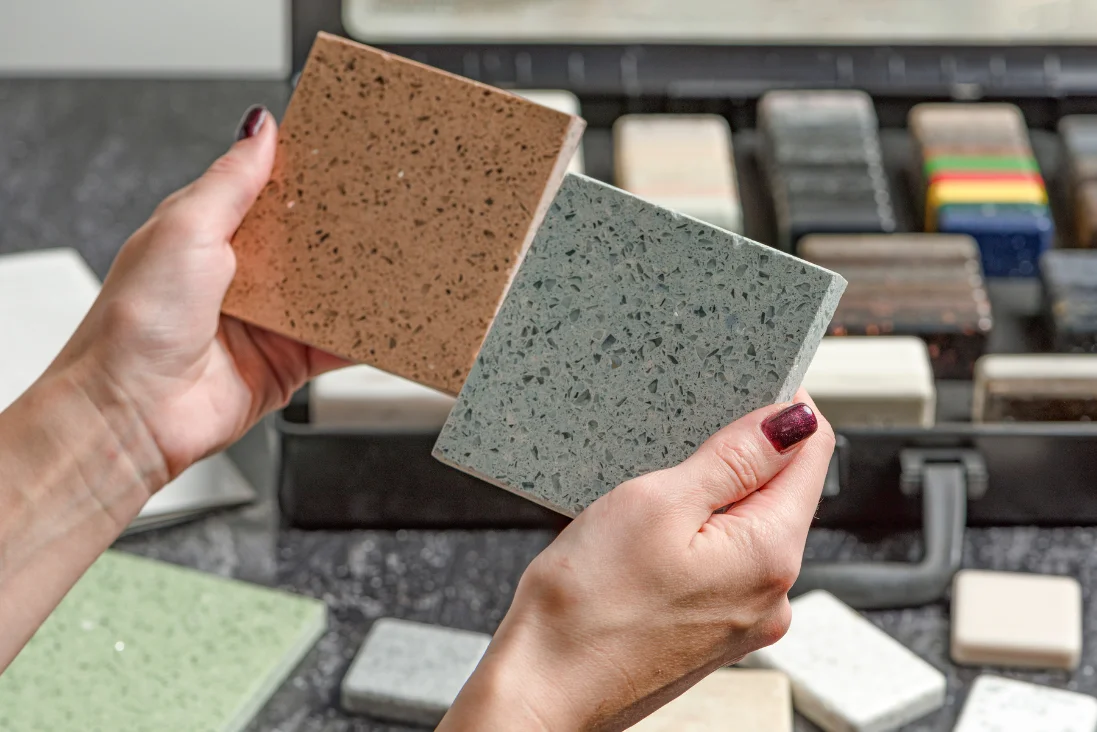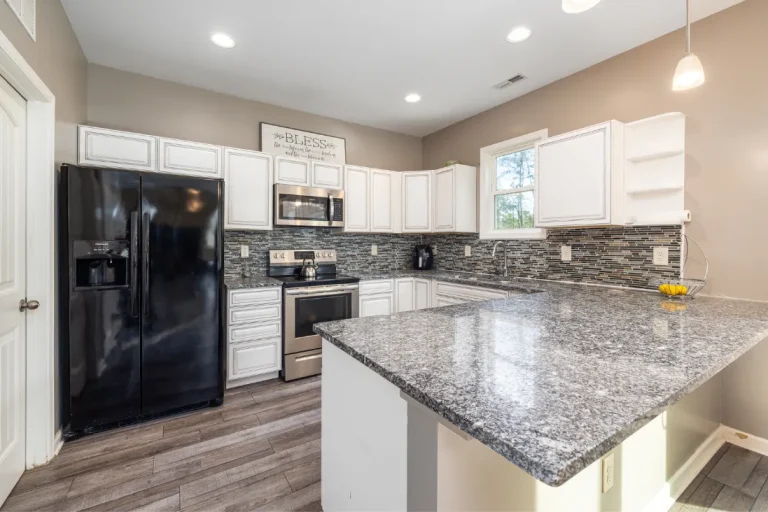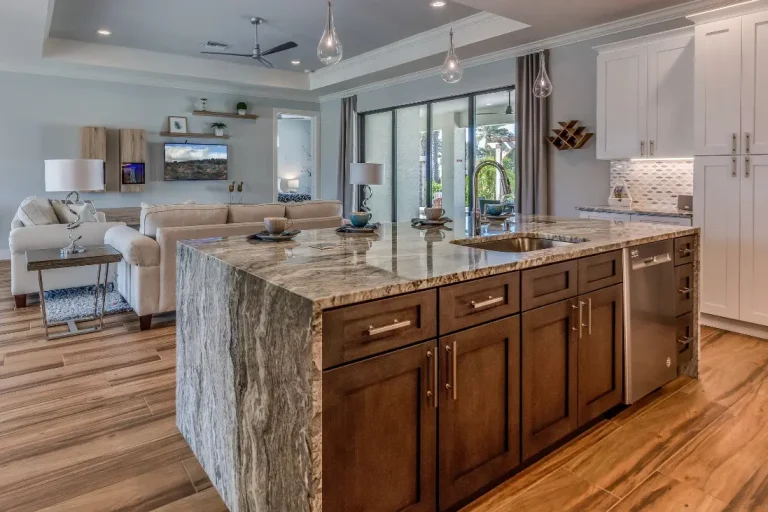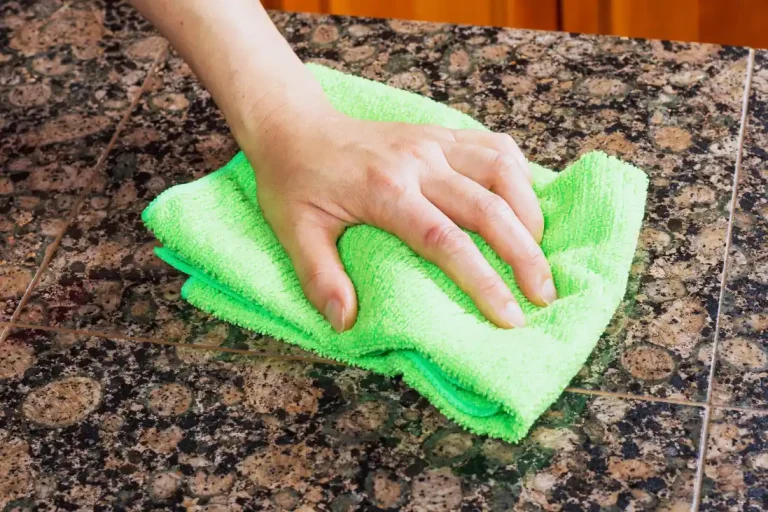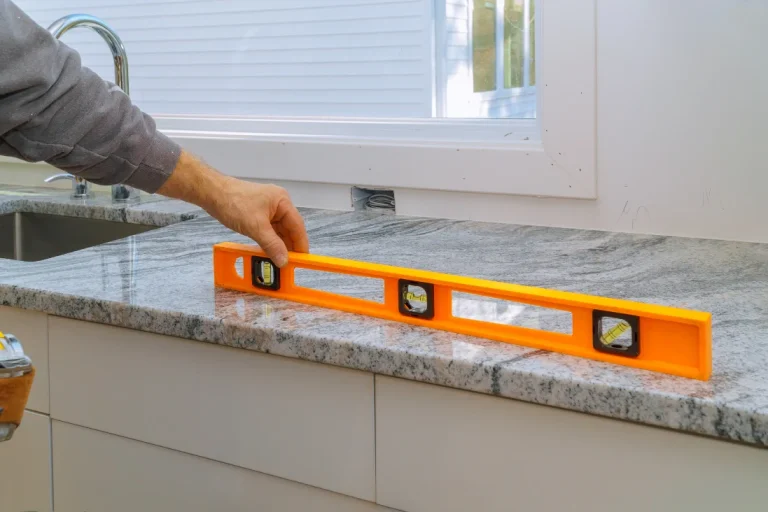The kitchen stands as the heart of every home, with countertops serving as its focal point. When it comes to choosing the perfect surface for your kitchen countertops, a variety of options, such as Granite, Quartz, Marble, and more, are available. Among these, Granite and Quartz emerge as two of the most favored choices among homeowners. Renowned for their durability, beauty, and functionality, both materials are well-suited for any kitchen.
However, the question remains: which one is the right fit for you? This comparison between Granite and Quartz aims to illuminate their differences and similarities, aiding you in making an informed decision about the countertop surface that best aligns with your needs. Whether you’re renovating your kitchen or constructing a new home, explore the crucial factors to consider when deciding between quartz and kitchen with Granite countertops.
Quartz vs. Granite Countertops — Comparing Engineered Stone and Natural Stone
Quartz and Granite contribute elegance and sophistication to any home, enhancing its value. Both materials are known for their durability, low maintenance, and versatility, offering a plethora of design, color, and pattern choices. Nevertheless, each of these splendid stone varieties possesses distinct strengths and advantages, along with some drawbacks. Whether you desire an elegant and modern finish for a new home or seek the optimal remodeling option, both Quartz and Granite countertops prove to be excellent choices. This is what makes them tough competitors for each other.
Appearance
Granite offers a diverse spectrum of colors, ranging from subtle earth tones to vibrant greens and blues. Finding the ideal piece to complement your kitchen’s color scheme might require some exploration. In contrast, Quartz is manufactured using a greater variety of pigments, providing a wider color range and more consistent coloring, simplifying the selection process. These characteristics influence the cost of a kitchen with quartz countertops.
Environmental Impact
Determining whether Quartz is superior to Granite is a debatable matter. Quartz may have a more favorable environmental impact as it is produced locally. In contrast, Granite needs to be sourced directly from its mining location, often in another country, leading to an increased cost per square foot for Granite countertops. Additionally, Granite does not incorporate any synthetic resins, potentially making it a more environmentally friendly option. Quartz, in contrast, involves the use of chemical resins.
Composition
Quartz countertops are crafted as engineered stones since they are manufactured products. These countertops consist of additional minerals, coloring additives, and 93% to 95% powdered real quartz stone. The binding element that brings everything together is the resin. In contrast, Granite countertops are extracted, shaped, and installed using only genuine Granite. Consequently, in the comparison of Quartz with kitchens with Granite countertops, Granite is considered more cost-effective.
Maintenance & Hygiene Factors
Granite surfaces can be easily cleaned with simple soap and water or a common cleanser. Despite not being highly stain-resistant and being prone to damage, they still demand careful maintenance. Due to its absorbent nature, Granite may harbor unwanted microorganisms and oils if not adequately sealed. On the other hand, Quartz requires less maintenance as it is a solid surface that does not necessitate resealing. It is considered more hygienic as it does not retain bacteria or dirt at a deeper level.
Durability
Granite countertops offer durability as a hard substance that can withstand heat and various kitchen conditions. However, they are susceptible to damage from spilled liquids with a strong flow. On the other hand, Quartz, being non-porous, exhibits greater resistance to wear and tear compared to Granite and is notably tougher. Nevertheless, it can incur damage with excessive use, so it is advisable always to install heating pads.
Aesthetics & Color Options
Granite presents a wide variety of designs and shades, making it a fantastic option for individuals looking for a gentle, neutral-toned kitchen with a standout countertop. It’s crucial to understand that, as Granite is a molten substance that has solidified, each kitchen countertop made of Granite is distinct, offering a one-of-a-kind character to your kitchen.
Whereas, Quartz offers an even wider variety. This aspect contributes significantly to its growing popularity. With a broader spectrum of colors, Quartz can not only replicate the appearance of stone but also seamlessly complement the designer’s decor. In essence, Quartz allows you to choose a unique tint, simplifying the decision-making process.
Textures and Finishes
Granite features somewhat larger crystals, creating an earthy texture that imparts a distinct color to the material. If you aim to infuse a natural element into your kitchen with Granite countertops, then it proves to be an excellent choice. In contrast to Granite’s crystalline finish, Quartz is usually bound with resin. The overall polish of Quartz becomes glossier and more refined as the Quartz is ground finer.
Quality and Grades
Quality stands as a primary consideration when selecting a material for kitchen countertops. Generally, Granite is categorized into three grades: grade 1, designed for commercial kitchens; grade 2; and grade 3 plus. These classifications are based on the stone’s complexity and color, with grade 1 typically exhibiting lower quality compared to the other grades. The quality of the stone for your kitchen top will be higher than the grades.
Conversely, Quartz has three distinct quality categories. The first is an engineered stone with a well-graded, smooth appearance and few veins. Following is the commercial-grade Quartz of lesser quality, providing excellent value. The last grade is the lowest, exhibiting less durability than the other two Granite grades.
Which Countertop is More Prone to Accidents?
In our daily lives, minor kitchen accidents are quite common. Granite, being a robust and unforgiving stone, tends to show fewer signs of cuts if a knife were to fall off the counter. However, mishaps like plates falling from cabinets or a pot being dropped on the edge of your Granite countertop may lead to chipping. Fortunately, you can easily repair these marks on the countertop yourself.
On the other hand, Quartz is held together by resin, making it more susceptible to scratches. Additionally, if hot pots and pans are placed on the countertop, the resin in your kitchen countertop could potentially scratch and stain the cookware.
Conclusion
Selecting the ideal kitchen countertop surface can be a challenging decision, requiring careful consideration of your lifestyle, budget, and personal preferences. While Quartz and Granite countertops remain popular choices, there are various other options worth exploring. Assessing the advantages and disadvantages of each material in conjunction with your specific needs will help you discover the optimal countertop surface for your kitchen, ensuring a blend of beauty, durability, and functionality for the long term.
We are confident that both options will leave a lasting impression on anyone entering your home. Each provides exceptional functionality and ease of maintenance for years to come. Whether you prefer the elegant-looking quartz or the beauty of Granite, we are here to assist you in selecting the suitable countertop. Contact us today to receive a free estimate for your dream countertop at APF.

